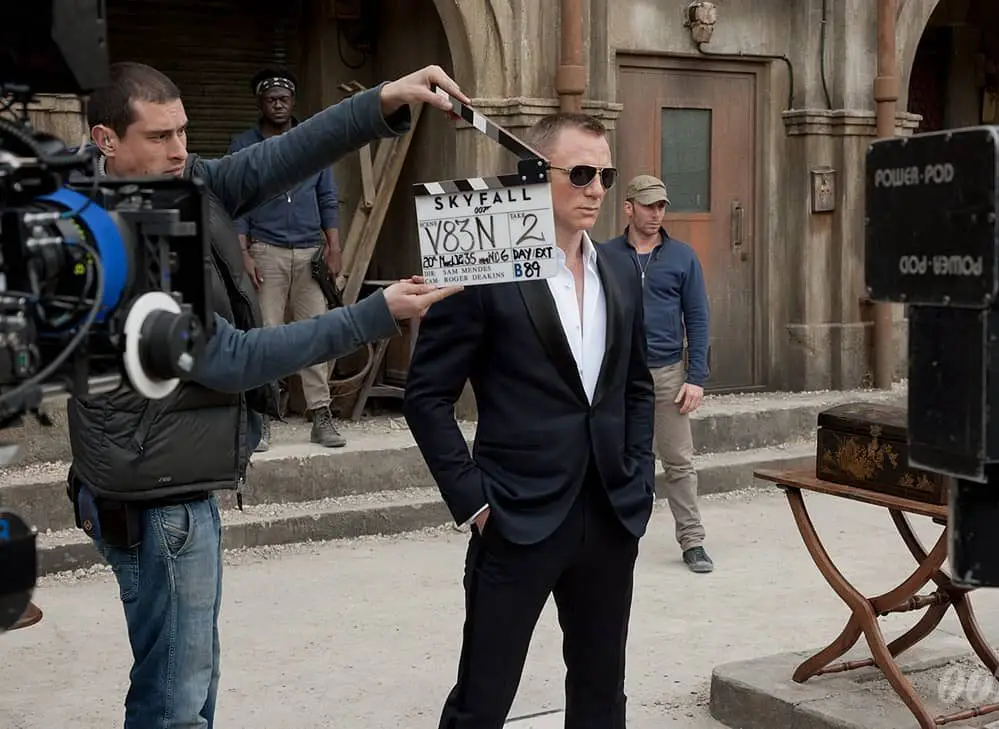It’s no secret that James Bond is a sexist womanizer who represents the hypersexual, hypermasculine fantasy of power and sexual prowess. The franchise’s formulaic plots have curated a treasure trove of “Bond girls,” beautiful women that 007 rescues, beds or, typically, both. For a long time, the franchise has gotten away with objectifying women to draw in audiences, but as feminism and our culture has evolved over the last half-century, backlash against the films’ depiction of women has crescendoed; clearly, the franchise is still in dire need of revamping. Enter Phoebe Waller-Bridge.
Perhaps best known for bringing “Killing Eve” to television, the BAFTA-winning, Emmy-nominated actress and writer has been tapped to renovate the upcoming movie, which will be the 25th installment in the Bond franchise. The writing phenom is well-known for her piercing wit, offbeat yet relatable humor and, most relevant, her well-developed female characters. From Sandra Oh’s brilliant, goodhearted but obsessive MI5 agent, Eve, to Jodie Comer’s sociopathic, strong-willed yet troubled assassin-for-hire, Villanelle, Waller-Bridge clearly has a knack for creating complex, nuanced female characters.
Rumor has it that Daniel Craig personally advocated for her participation on the project; whether he wanted her specifically to rework the female roles or merely to polish up the finished script with more humor, Waller-Bridge has taken the initiative to focus on the women. Are you wondering why it’s taken so long for the franchise to address such a widespread desire for more complex female roles? It’s probably because Waller-Bridge is the first woman to write for a Bond film since the ’60s.
Despite, or perhaps because of, his misogyny toward women, Phoebe Waller-Bridge argues that Bond is “absolutely relevant now.” She further insists that “he needs to be true to his character,” because part of what defines the character is his womanizing ways. She instead states that the franchise “has just got to evolve, and the important thing is that the film treats the women properly.” Altering his character will only make it seem like misogyny is a relic of the past, but changing the film’s response to his misogyny will provide an apt social critique on an outdated and unacceptable frame of mind.
Likewise, as longtime producer Barbara Broccoli assured in 2018, there will never be a female Bond. She recognizes, “We don’t have to turn male characters into women. Let’s just create more female characters and make the story fit those female characters.”
The trend of rebooting all-male productions to feature women has been plaguing Hollywood for years now. From the 2016 “Ghostbusters” to last year’s “Ocean’s 8,” film executives seem to think that the solution to sexism in media is to make hand-me-down versions of movies that are ultimately worse than the originals, and this placating and condescending notion only provides more fodder for people to say that men do it better.
To avoid this, while still feminizing the franchise, the upcoming film stars actress Lashana Lynch as the new 007. While Craig will still play Bond, his title at MI6 has been given to someone who would previously have been known as a Bond girl. In this way, rather than ignoring Bond’s character or erasing the franchise’s legacy, the writers are passing on the mantle to a more modern version of the super spy.
https://www.instagram.com/p/BzIxcTpAqiH/
And that’s where Phoebe Waller-Bridge comes in. Her pass of the script will hopefully ensure that the new 007 is more than just a sex object or a token the writers can cash in for diversity. She wants to make the female characters feel “like real people” and, moreover, she wants “to make sure that when they get those pages through, that [the actresses] open them and go, ‘I can’t wait to do that.’”
Since the inception of film, actresses have often been shoehorned into unappealing roles for lack of good female characters, especially if they’re just starting their careers, because it takes a certain level of fame until they can feasibly reject roles they don’t want. Waller-Bridge recognizes that she “very rarely had that feeling [of excitement] early in [her] career,” and although her solution was to write her own character (and show) in the form of “Fleabag,” not all actresses can double as writers.
The time has never been riper for original, realistic and thoughtful depictions of female characters. From Waller-Bridge’s own creations to massive hits like “Girls Trip” and “Big Little Lies,” female-driven stories clearly have a large and enthusiastic audience, and it’s time for big names in film and television to take a page out of Bond’s book and hire their own Phoebe Waller-Bridges, or we’ll be stuck in a world where women can be categorized solely by their relationship to a man.
















